3rd Place Overall at the Fury 6 Hour MTB Race
Comments Off on 3rd Place Overall at the Fury 6 Hour MTB Race
Experienced Personal Training, Evidenced Based Nutrition and Intelligent Conversation!Posts RSS Comments RSS
Comments Off on 3rd Place Overall at the Fury 6 Hour MTB Race
Something has been going wrong on many college campuses in the last few years. Speakers are shouted down. Students and professors say they are walking on eggshells and are afraid to speak honestly. Rates of anxiety, depression, and suicide are rising—on campus as well as nationally. How did this happen?First Amendment expert Greg Lukianoff and social psychologist Jonathan Haidt, author of The Anxious Generation, show how the new problems on campus have their origins in three terrible ideas that have become increasingly woven into American childhood and education: What doesn’t kill you makes you weaker; always trust your feelings; and life is a battle between good people and evil people. These three Great Untruths contradict basic psychological principles about well-being and ancient wisdom from many cultures. Embracing these untruths—and the resulting culture of safetyism—interferes with young people’s social, emotional, and intellectual development. It makes it harder for them to become autonomous adults who are able to navigate the bumpy road of life.Lukianoff and Haidt investigate the many social trends that have intersected to promote the spread of these untruths. They explore changes in childhood such as the rise of fearful parenting, the decline of unsupervised, child-directed play, and the new world of social media that has engulfed teenagers in the last decade. They examine changes on campus, including the corporatization of universities and the emergence of new ideas about identity and justice. They situate the conflicts on campus within the context of America’s rapidly rising political polarization and dysfunction.This is a book for anyone who is confused by what is happening on college campuses today, or has children, or is concerned about the growing inability of Americans to live, work, and cooperate across party lines.
Something has been going wrong on many college campuses in the last few years. Speakers are shouted down. Students and professors say they are walking on eggshells and are afraid to speak honestly. Rates of anxiety, depression, and suicide are rising—on campus as well as nationally. How did this happen?
First Amendment expert Greg Lukianoff and social psychologist Jonathan Haidt, author of The Anxious Generation, show how the new problems on campus have their origins in three terrible ideas that have become increasingly woven into American childhood and education: What doesn’t kill you makes you weaker; always trust your feelings; and life is a battle between good people and evil people. These three Great Untruths contradict basic psychological principles about well-being and ancient wisdom from many cultures. Embracing these untruths—and the resulting culture of safetyism—interferes with young people’s social, emotional, and intellectual development. It makes it harder for them to become autonomous adults who are able to navigate the bumpy road of life.
Lukianoff and Haidt investigate the many social trends that have intersected to promote the spread of these untruths. They explore changes in childhood such as the rise of fearful parenting, the decline of unsupervised, child-directed play, and the new world of social media that has engulfed teenagers in the last decade. They examine changes on campus, including the corporatization of universities and the emergence of new ideas about identity and justice. They situate the conflicts on campus within the context of America’s rapidly rising political polarization and dysfunction.
This is a book for anyone who is confused by what is happening on college campuses today, or has children, or is concerned about the growing inability of Americans to live, work, and cooperate across party lines.
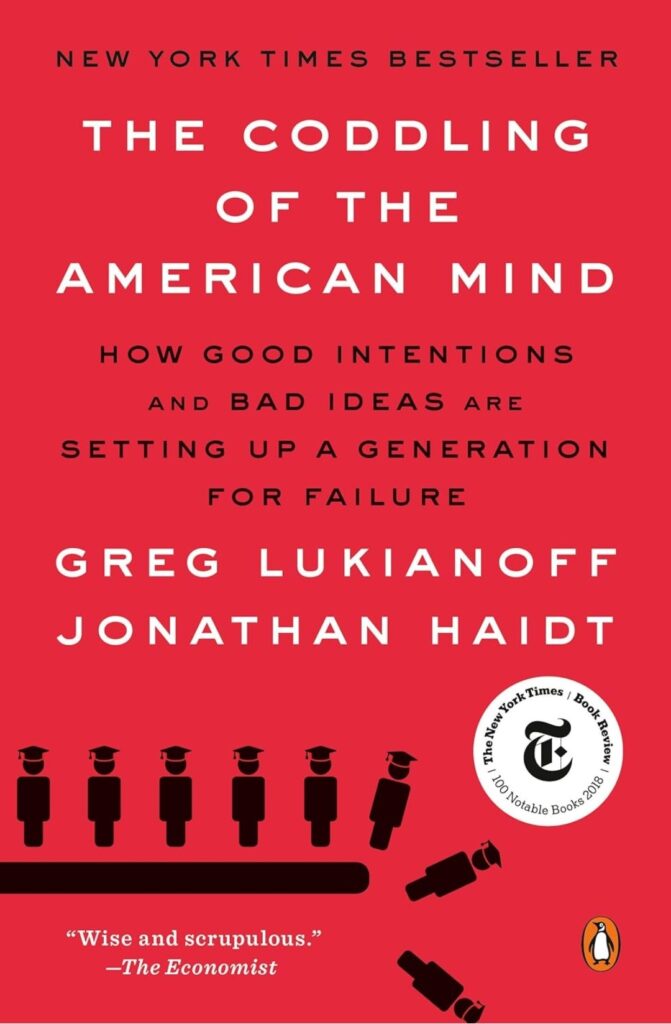
Comments Off on Finished Reading: The Coddling Of The American Mind
Trauma is a fact of life. Veterans and their families deal with the painful aftermath of combat; one in five Americans has been molested; one in four grew up with alcoholics; one in three couples have engaged in physical violence. Dr. Bessel van der Kolk, one of the world’s foremost experts on trauma, has spent over three decades working with survivors. In The Body Keeps the Score, he uses recent scientific advances to show how trauma literally reshapes both body and brain, compromising sufferers’ capacities for pleasure, engagement, self-control, and trust. He explores innovative treatments—from neurofeedback and meditation to sports, drama, and yoga—that offer new paths to recovery by activating the brain’s natural neuroplasticity. Based on Dr. van der Kolk’s own research and that of other leading specialists, The Body Keeps the Score exposes the tremendous power of our relationships both to hurt and to heal—and offers new hope for reclaiming lives.
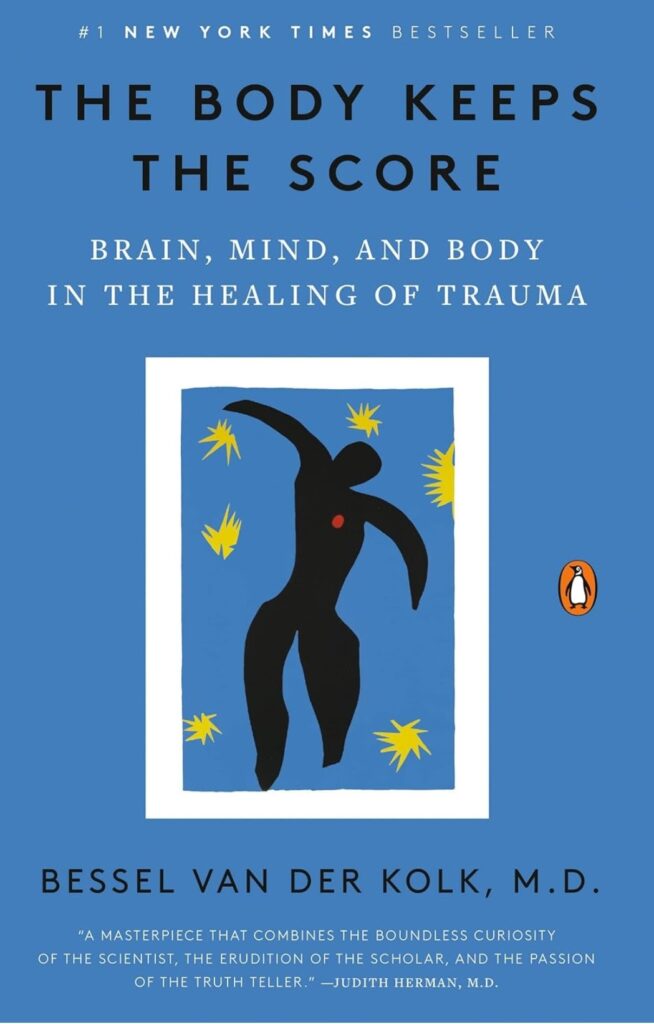
Comments Off on Finished Reading: The Body Keeps The Score
The instant New York Times bestseller by the acclaimed author of In the Realm of Hungry Ghosts, a groundbreaking investigation into the causes of illness, a bracing critique of how our society breeds disease, and a pathway to health and healing.
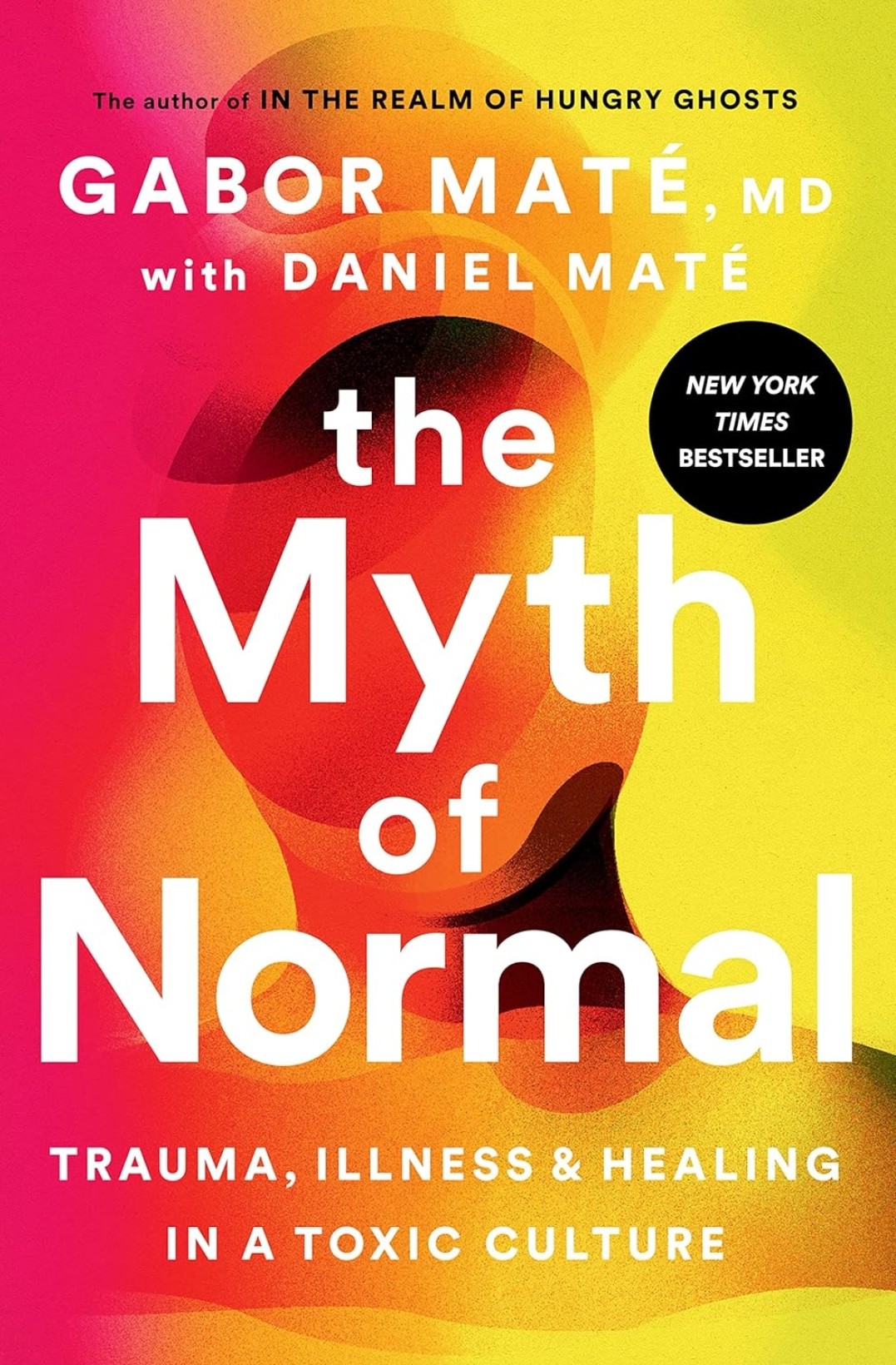
Comments Off on Finished Reading: The Myth of Normal
Excited to get started with a “new” personal trainer?
How about building a long-term, on-going relationship with your “new” personal trainer?
Be careful here…
The personal-training industry has high rates of employee turnover, meaning that your newly found personal trainer is likely to be gone in the near future. One, because the definition of personal trainer is so loosely defined in the fitness industry today, setting a very low standard and two, because this position is frequently filled by those who are waiting for something better to come along with no real intention or capacity to be a professional.
Look for certifications from ACSM or NSCA, a degree in health and fitness and on-going participation in sports and athletics.
Your personal trainer should know how to stay motivated, year after year, as well as injury free.
If they can’t do that for themselves how are they going to do that for you?
Comments Off on Personal Trainer Turnover!
Human physiology in the vast majority of cases runs without a glitch when all things necessary for human health are accounted for; macro-nutrition, micro-nutrition, proper body composition, consistent exercise, proper sleep and intermittent relief from stress, no drugs, solid relationships, a purpose in life. In other words, the body is designed to operate smoothly and for a long period of time, surprisingly many people simply do not understand the art of well-being. Wellness is a series of good choices, a health problem in most cases is simply a human “check engine light” that something is wrong with our lifestyle aka our choices!
Comments Off on Human Check Engine Light, Take it Seriously.
Find a personal trainer that’s always there’s for you and stay consistent!
Comments Off on Be Consistent!
Being truly fit has a dramatic effect on our brain and physiology; normalizing our various physiological systems that might be out of balance and optimizing those that are not. Be fit! Be very fit!
Comments Off on Be Very Fit!
The correct exercises and the right equipment; coupled with the optimal amount of damage and recovery time!

Comments Off on Resistance Training is a Craft!
Comments Off on Cascade High Intensity Interval Training Curved Treadmill
There are few things in our lives that we can point to and say with absolute certainty “this IMPROVES my life.” Vigorous physical activity is generally one of those things.
Comments Off on Vigorous Physical Activity!
Eventually, pleasurable things make us uncomfortable. Paradoxically, self-control promotes the feeling of pleasure.
Comments Off on Comfortable soon becomes Uncomfortable!
There’s no shortage of messages extolling us to reach for things that we don’t need; perhaps we could use more messages encouraging us to spend more quality time with our “preferred people” and taking better care of ourselves.
Comments Off on The Right Messages!
Vigorous exercise is among the most life-affirming and rewarding of all human activities.
Comments Off on The Bliss of Sweat!
Wellness and wisdom require proper instruction; similar to arithmetic, writing and reading.
Comments Off on It’s Not Common sense!
The epic wisdom contained in a lost library helps the author turn his life around.
John Kaag is a dispirited young philosopher at sea in his marriage and his career when he stumbles upon West Wind, a ruin of an estate in the hinterlands of New Hampshire that belonged to the eminent Harvard philosopher William Ernest Hocking. Hocking was one of the last true giants of American philosophy and a direct intellectual descendent of William James, the father of American philosophy and psychology, with whom Kaag feels a deep kinship. It is James’s question “Is life worth living?” that guides this remarkable book.
The books Kaag discovers in the Hocking library are crawling with insects and full of mold. But he resolves to restore them, as he immediately recognizes their importance. Not only does the library at West Wind contain handwritten notes from Whitman and inscriptions from Frost, but there are startlingly rare first editions of Hobbes, Descartes, and Kant. As Kaag begins to catalog and read through these priceless volumes, he embarks on a thrilling journey that leads him to the life-affirming tenets of American philosophy―self-reliance, pragmatism, and transcendence―and to a brilliant young Kantian who joins him in the restoration of the Hocking books.
Part intellectual history, part memoir, American Philosophy is ultimately about love, freedom, and the role that wisdom can play in turning one’s life around.
Comments Off on Finished Reading: American Philosophy
With deliberate Physical activity comes microtrauma and damage; we rest, eat healthy nutrients and the BODY grows stronger.
With deliberate Emotional activity comes microtrauma and damage; we rest, eat healthy nutrients and the MIND grows stronger.
In other words, we grow stronger, both physically and emotionally, with the right amount of stress and recovery.
Comments Off on Strategic Growth!
The most frustrating thing about growing old for many is the lack of control we frequently possess over our own bodies; from the way it looks, to the way it functions.
However, rigorous exercise provides a sense of control, a natural way to push back over the physical, as well as the mental changes taking place.
Getting older is certainly unavoidable, whereas falling apart and feeling old is not!
Comments Off on Getting Older is Unavoidable, Feeling Old is Not!
The ideal fitness program, that produces the maximum benefit in terms of enhancing health and performance, while decreasing the risk of injury and overtraining, is generally not found through crossfit, boot camps or group settings, but rather custom fit to the needs of the individual and their lifestyle.
Frequency, duration, intensity and modality of exercise are the components to our success; one size does not fit all.
A fitness program should fit us, as opposed to us fitting into the fitness program…
Comments Off on Group Training is Not Ideal!
It’s commonly acknowledged that TYPE 2 DIABETES is caused by being overweight; therefore, losing weight is commonly recommended as a counter measure.
However, losing weight is frequently not enough because of the natural loss of muscle mass due to the aging process, years of deconditioning and/or calorie restricted diets; our glucose is stored primarily in our skeletal muscles as glycogen, without enough muscle mass high blood sugar becomes a problem due to a lack of storage space.
Resistance Training is the over-looked medication required to REVERSE this condition, not another prescription.
Comments Off on Type II Diabetes and Resistance Training!
Habitual multitasking can make us mentally, spiritually and physically sick, while UNITASKING naturally increases our overall wellness and well-being. Focusing on one important task at a time, increases our performance, motivation and accuracy, while making us a calmer human being.
Comments Off on Unitasking! Not Multitasking.
Intelligent resistance training programs use duration and intensity levels to achieve life-long consistency.
Comments Off on Consistency is Key!
The relationship between food and our health is far more important than fitness.
Comments Off on Nutrition Matters!
The majority of us have been nutritionally educated by marketing – not science.
Eating primarily animal protein can paradoxically make us larger if we’re underweight and smaller if we’re overweight?
Nope, animal protein isn’t magical.
However, the right amount of animal protein will help maintain your health and that’s considerably less than you might think.
Comments Off on Protein Paradox
Existential therapy is practiced throughout the world. But until now, it has lacked a coherent structure. In Existential Psychotherapy, Irvin Yalom finds the essence of existential psychotherapy, synthesizing its historical background, core tenets, and usefulness to the practice.
Organized around what Yalom identifies as the four “ultimate concerns of life” — death, freedom, isolation, and meaninglessness — the book takes up the meaning of each existential concern and the type of conflict that springs from our confrontation with each. He shows how these concerns are manifested in personality and psychopathology, and how treatment can be helped by our knowledge of them.
Drawing from clinical experience, empirical research, philosophy, and great literature, Yalom provides an intellectual home base for those psychotherapists who have sensed the incompatibility of orthodox theories with their own clinical experience, and opens new doors for empirical research. The fundamental concerns of therapy and the central issues of human existence are woven together here as never before, with intellectual and clinical results that will surprise and enlighten all readers.
Comments Off on Finished Reading: Existential Psychotherapy
It’s easy to identify rage in people who lose their temper at traffic jams, unruly children, unresponsive coworkers, and unrealistic bosses. But we may not recognize more subtle manifestations of anger, such as being uncomfortable with loose ends, acting impatiently, or being overly critical. That is anger, too. And, as is so often the case, angry folks don’t seem to realize that the behavior causing them problems at home or at work actually stems from unrecognized and unresolved pain and emotional injuries from the past. Is all this negative emotion inevitable, or are there choices about how to respond, choices that can improve personal relationships as well as emotional health?
The Anger Trap is a landmark book that strips away the myths and misconceptions about anger and reveals how you can learn to distinguish between healthy and unhealthy anger so that you may choose―or help someone else to choose―a better, more spiritually enlightened path. The Anger Trap examines the root causes of anger and can help you realize your patterns and break the destructive cycles of criticism, frustration, and irritation that hurt you and others around you. Drawing insight from timeless spiritual wisdom as well as cutting-edge research, Dr. Carter offers practical techniques to free you from anger, its hidden insecurities, fears, and selfishness and thereby improve the quality of your home and workplace life. The book clearly illustrates how the change process works and The Anger Trap is filled with real-life examples of the ways people have come to terms with their anger by applying the concepts Dr. Carter outlines

Comments Off on Finished Reading: The Anger Trap (Free Yourself from the Frustrations that Sabotage Your Life)
Those with early signs of hypertension who found the time to sleep an extra hour every day showed significant improvement in their blood pressure readings. In addition, those who found the time to exercise consistently, lose fat and gain muscle while consuming more fruits and vegetables showed significant improvement in overall blood pressure and frequently reversed hypertension as well without prescription drugs. Take corrective action, not drugs to improve your health.
Comments Off on Early Hypertension?
Bill Bryson once again proves himself to be an incomparable companion as he guides us through the human body–how it functions, its remarkable ability to heal itself, and (unfortunately) the ways it can fail. Full of extraordinary facts (your body made a million red blood cells since you started reading this) and irresistible Bryson-esque anecdotes, The Body will lead you to a deeper understanding of the miracle that is life in general and you in particular. As Bill Bryson writes, “We pass our existence within this wobble of flesh and yet take it almost entirely for granted.” The Body will cure that indifference with generous doses of wondrous, compulsively readable facts and information. https://www.amazon.com/Body-Guide-Occupants-Bill-Bryson/dp/0385539304/ref=sr_1_1?keywords=the+body&qid=1575056989&sr=8-1
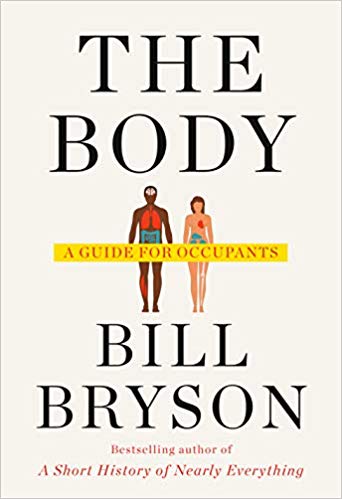
Comments Off on Finished Reading: The Body
A founder of the field of evolutionary medicine uses his decades of experience as a psychiatrist to provide a much-needed new framework for making sense of mental illness.
Why do I feel bad? There is real power in understanding our bad feelings. With his classic Why We Get Sick, Dr. Randolph Nesse helped to establish the field of evolutionary medicine. Now he returns with a book that transforms our understanding of mental disorders by exploring a fundamentally new question. Instead of asking why certain people suffer from mental illness, Nesse asks why natural selection has left us all with fragile minds.
Drawing on revealing stories from his own clinical practice and insights from evolutionary biology, Nesse shows how negative emotions are useful in certain situations, yet can become overwhelming. Anxiety protects us from harm in the face of danger, but false alarms are inevitable. Low moods prevent us from wasting effort in pursuit of unreachable goals, but they often escalate into pathological depression. Other mental disorders, such as addiction and anorexia, result from the mismatch between modern environment and our ancient human past. And there are good evolutionary reasons for sexual disorders and for why genes for schizophrenia persist. Taken together, these and many more insights help to explain the pervasiveness of human suffering, and show us new paths for relieving it by understanding individuals as individuals.
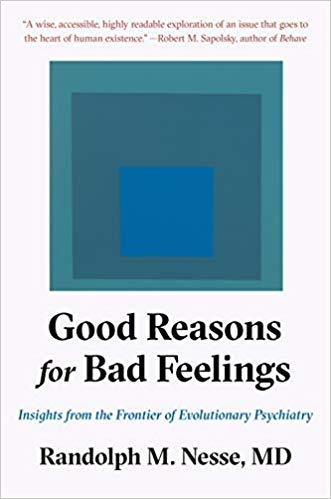
Comments Off on Finished Reading: Good Reasons for Bad Feelings (Evolutionary Psychiatry)
The best time of year is all year!


Comments Off on Mountain Biking South Mountain!
How to Pivot Toward What Matters
Life is not a problem to be solved. ACT shows how we can live full and meaningful lives by embracing our vulnerability and turning toward what hurts.
In this landmark book, the originator and pioneering researcher into Acceptance and Commitment Therapy (ACT) lays out the psychological flexibility skills that make it one of the most powerful approaches research has yet to offer. These skills have been shown to help even where other approaches have failed. Science shows that they are useful in virtually every area–mental health (anxiety, depression, substance abuse, eating disorders, PTSD); physical health (chronic pain, dealing with diabetes, facing cancer); social processes (relationship issues, prejudice, stigma, domestic violence); and performance (sports, business, diet, exercise).
How does psychological flexibility help? We struggle because the problem-solving mind tells us to run from what causes us fear and hurt. But we hurt where we care. If we run from a sense of vulnerability, we must also run from what we care about. By learning how to liberate ourselves, we can live with meaning and purpose, along with our pain when there is pain.
Although that is a simple idea, it resists our instincts and programming. The flexibility skills counter those ingrained tendencies. They include noticing our thoughts with curiosity, opening to our emotions, attending to what is in the present, learning the art of perspective taking, discovering our deepest values, and building habits based around what we deeply want.
Beginning with the epiphany Steven Hayes had during a panic attack, this book is a powerful narrative of scientific discovery filled with moving stories as well as advice for how we can put flexibility skills to work immediately. Hayes shows how allowing ourselves to feel fully and think freely moves us toward commitment to what truly matters to us. Finally, we can live lives that reflect the qualities we choose.
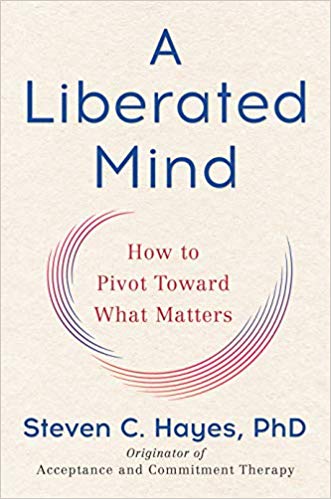
Comments Off on Finished Reading: A Liberated Mind (ACT)
A few weeks ago! Amazing views and great elevation for climbing!


Comments Off on Mountain Biking Mount Saint Helens!
Muscular strength, muscular endurance and cardiorespiratory endurance decline mostly because of a lack of exercise, not because of factors associated with biological aging. Comprehensive research clearly shows that physical disuse accelerates the aging process and physical atrophy can begin at any age due to inactivity.
Comments Off on Disuse – NOT Aging!
Happiness is the meaning and purpose of life, the whole aim and end of human existence as Aristotle once wrote, but the problem is most people have no idea how to define it, let alone find it and that’s where the struggle begins.
Comments Off on Can you define Happiness?
If you want to have close relationships, that you can enjoy and depend upon year after year, make sure that you show support for people day-to-day, week-to-week, month-to-month as well as during the more difficult times. This sounds obvious but it’s not! Support people through the good times and through the daily grind, not just during an obvious rough patch.
Comments Off on Want Quality Relationships?
Our mind’s focus and attention is limited, we can either look for negativity, hopelessness, uncertainty, fear and pointlessness or we can look for optimism, hope, strength, gratitude, meaning and purpose!
Comments Off on Look for the Positive, Not for the Negative!
Traditional Psychology deals with mental disorders and patients are frequently treated with medications. Medications frequently make things worse and create a chemical imbalance that was never there in the first place. Moreover, the pessimistic, depressed, fearful and/or apathetic thought processes remain intact throughout much of this process. Leading to no relief or a further slide. What the majority of people need who are experiencing mental distress is a change in the way they view themselves and the world. That’s where the countervailing view “Positive Psychology” steps in and readjusts the pessimistic, depressed, fearful or apathetic point of view with constructive, positive, energizing thoughts that push the mind and body in a healthful direction. We can work on that here!
Comments Off on Positive Psychology, Not Standard Psychology!
The Truth About What Really Causes Heart Disease and How to Avoid It!
Statins are the so-called “wonder drugs” widely prescribed to lower blood cholesterol levels that claim to offer unparalleled protection against heart disease. Many experts claim that they are completely safe and that they are also capable of preventing a whole series of other conditions. This groundbreaking study exposes the truth behind the hype surrounding statins and reveals a number of crucial facts, including that high cholesterol levels do not cause heart disease; that high-fat diets—saturated or otherwise—do not affect blood cholesterol levels; and that for most men and all women the benefits offered by statins are negligible at best. Other data is also provided that shows that statins have many more side affects than is often acknowledged. This hard-hitting survey also points a finger at the powerful pharmaceutical industry and an unquestioning medical profession as perpetrators of the largely facetious concepts of “good” and “bad” cholesterol that are designed to convince millions of people to spend billions on statins. With clarity and wit, this appeal to common sense and scientific fact debunks common assumptions on what constitutes a healthy lifestyle and diet, as well as the idea that there is a miracle cure for heart disease.
Comments Off on Finished Reading: The Great Cholesterol Con
Robert Greene is a master guide for millions of readers, distilling ancient wisdom and philosophy into essential texts for seekers of power, understanding and mastery. Now he turns to the most important subject of all – understanding people’s drives and motivations, even when they are unconscious of them themselves.
We are social animals. Our very lives depend on our relationships with people. Knowing why people do what they do is the most important tool we can possess, without which our other talents can only take us so far. Drawing from the ideas and examples of Pericles, Queen Elizabeth I, Martin Luther King Jr, and many others, Greene teaches us how to detach ourselves from our own emotions and master self-control, how to develop the empathy that leads to insight, how to look behind people’s masks, and how to resist conformity to develop your singular sense of purpose. Whether at work, in relationships, or in shaping the world around you, The Laws of Human Nature offers brilliant tactics for success, self-improvement, and self-defense.
https://www.amazon.com/gp/product/0525428143/ref=oh_aui_detailpage_o08_s00?ie=UTF8&psc=1
Comments Off on Finished Reading: The Laws of Human Nature
Comments Off on Enjoying a Mountain Bike Ride in Pine, AZ!
From the celebrated neurobiologist and primatologist, a landmark, genre-defining examination of human behavior, both good and bad, and an answer to the question: Why do we do the things we do?
Sapolsky’s storytelling concept is delightful but it also has a powerful intrinsic logic: he starts by looking at the factors that bear on a person’s reaction in the precise moment a behavior occurs, and then hops back in time from there, in stages, ultimately ending up at the deep history of our species and its evolutionary legacy.
And so the first category of explanation is the neurobiological one. A behavior occurs–whether an example of humans at our best, worst, or somewhere in between. What went on in a person’s brain a second before the behavior happened? Then Sapolsky pulls out to a slightly larger field of vision, a little earlier in time: What sight, sound, or smell caused the nervous system to produce that behavior? And then, what hormones acted hours to days earlier to change how responsive that individual is to the stimuli that triggered the nervous system? By now he has increased our field of vision so that we are thinking about neurobiology and the sensory world of our environment and endocrinology in trying to explain what happened.
Sapolsky keeps going: How was that behavior influenced by structural changes in the nervous system over the preceding months, by that person’s adolescence, childhood, fetal life, and then back to his or her genetic makeup? Finally, he expands the view to encompass factors larger than one individual. How did culture shape that individual’s group, what ecological factors millennia old formed that culture? And on and on, back to evolutionary factors millions of years old.
The result is one of the most dazzling tours d’horizon of the science of human behavior ever attempted, a majestic synthesis that harvests cutting-edge research across a range of disciplines to provide a subtle and nuanced perspective on why we ultimately do the things we do…for good and for ill. Sapolsky builds on this understanding to wrestle with some of our deepest and thorniest questions relating to tribalism and xenophobia, hierarchy and competition, morality and free will, and war and peace. Wise, humane, often very funny, Behave is a towering achievement, powerfully humanizing, and downright heroic in its own right.
Comments Off on Finished Reading: BEHAVE “The Biology of Humans at Our Best and Worst”
Why is it so hard to say “I made a mistake”—and really believe it?
When we make mistakes, cling to outdated attitudes, or mistreat other people, we must calm the cognitive dissonance that jars our feelings of self-worth. And so, unconsciously, we create fictions that absolve us of responsibility, restoring our belief that we are smart, moral, and right—a belief that often keeps us on a course that is dumb, immoral, and wrong. Backed by years of research, Mistakes Were Made (But Not by Me) offers a fascinating explanation of self-justification—how it works, the damage it can cause, and how we can overcome it. This updated edition features new examples and concludes with an extended discussion of how we can live with dissonance, learn from it, and perhaps, eventually, forgive ourselves.
Comments Off on Finished Reading: Mistakes Were Made (but Not by Me): Why We Justify Foolish Beliefs, Bad Decisions and Hurtful Acts
Is coffee good for you? Will sausages kill you? Should you avoid sugar, fat, salt, or all three? Booked your smear test yet? Checked your balls? Considering bariatric surgery? Are you taking statins like a good boy or girl? … Or should you just ignore this relentless bombardment of medical advice and remember that no one gets out of life alive. With the same brilliance and humour that bowled us over in “The Great Cholesterol Con”, Dr Kendrick takes a scalpel to the world of medical research and dissects it for your inspection. He reveals the tricks that are played to make minute risk look enormous. How the drug trials are hyped, the data manipulated, the endless games that are played to scare us into doing what, in many cases, makes the most money. After reading this book you will know what to believe and what to ignore. You’ll have a much greater understanding of the world of medical research. A world in crisis. “It is simply no longer possible to believe much of the clinical research that is published, or to rely on the judgment of trusted physicians or authoritative medical guidelines. I take no pleasure in this conclusion, which I reached slowly and reluctantly over my two decades as an editor of The New England Journal of Medicine.” Dr. Marcia Angell.
https://www.amazon.com/Doctoring-Data-medical-advice-nonsense/dp/1907797467
Comments Off on Finished Reading: Doctoring Data (how to sort out medical advice from medical nonsense)
Movie Info:
America has the most technologically advanced health care system in the world, yet medical interventions have become the third leading cause of death, and the overwhelming majority of high-risk implanted devices never require a single clinical trial. In THE BLEEDING EDGE, Academy Award (R) nominated filmmakers Kirby Dick and Amy Ziering (THE INVISIBLE WAR, THE HUNTING GROUND) turn their sights on the $400 billion medical device industry, examining lax regulations, corporate cover-ups, and profit driven incentives that put patients at risk daily. Weaving emotionally powerful stories of people whose lives have been irrevocably harmed, the film asks: what life-saving technologies may actually be killing us?
Comments Off on Recommended: Watch the “The Bleeding Edge”
On average, a physician will interrupt a patient describing her symptoms within eighteen seconds. In that short time, many doctors decide on the likely diagnosis and best treatment. Often, decisions made this way are correct, but at crucial moments they can also be wrong — with catastrophic consequences. In this myth-shattering book, Jerome Groopman pinpoints the forces and thought processes behind the decisions doctors make. Groopman explores why doctors err and shows when and how they can — with our help — avoid snap judgments, embrace uncertainty, communicate effectively, and deploy other skills that can profoundly impact our health. This book is the first to describe in detail the warning signs of erroneous medical thinking and reveal how new technologies may actually hinder accurate diagnoses. How Doctors Think offers direct, intelligent questions patients can ask their doctors to help them get back on track.
Groopman draws on a wealth of research, extensive interviews with some of the country’s best doctors, and his own experiences as a doctor and as a patient. He has learned many of the lessons in this book the hard way, from his own mistakes and from errors his doctors made in treating his own debilitating medical problems.
How Doctors Think reveals a profound new view of twenty-first-century medical practice, giving doctors and patients the vital information they need to make better judgments together.
https://www.amazon.com/gp/product/0547053649/ref=oh_aui_detailpage_o03_s00?ie=UTF8&psc=1
Comments Off on Finished Reading: How Doctors Think
#1 NEW YORK TIMES BESTSELLER, NAMED BY THE TIMES AS ONE OF “6 BOOKS TO HELP UNDERSTAND TRUMP’S WIN” AND SOON TO BE A MAJOR-MOTION PICTURE DIRECTED BY RON HOWARD
“You will not read a more important book about America this year.”—The Economist
“A riveting book.”—The Wall Street Journal
“Essential reading.”—David Brooks, New York Times
From a former marine and Yale Law School graduate, a powerful account of growing up in a poor Rust Belt town that offers a broader, probing look at the struggles of America’s white working class
Hillbilly Elegy is a passionate and personal analysis of a culture in crisis—that of white working-class Americans. The decline of this group, a demographic of our country that has been slowly disintegrating over forty years, has been reported on with growing frequency and alarm, but has never before been written about as searingly from the inside. J. D. Vance tells the true story of what a social, regional, and class decline feels like when you were born with it hung around your neck.
The Vance family story begins hopefully in postwar America. J. D.’s grandparents were “dirt poor and in love,” and moved north from Kentucky’s Appalachia region to Ohio in the hopes of escaping the dreadful poverty around them. They raised a middle-class family, and eventually their grandchild (the author) would graduate from Yale Law School, a conventional marker of their success in achieving generational upward mobility.
But as the family saga of Hillbilly Elegy plays out, we learn that this is only the short, superficial version. Vance’s grandparents, aunt, uncle, sister, and, most of all, his mother, struggled profoundly with the demands of their new middle-class life, and were never able to fully escape the legacy of abuse, alcoholism, poverty, and trauma so characteristic of their part of America. Vance piercingly shows how he himself still carries around the demons of their chaotic family history.
A deeply moving memoir with its share of humor and vividly colorful figures, Hillbilly Elegy is the story of how upward mobility really feels. And it is an urgent and troubling meditation on the loss of the American dream for a large segment of this country.
Comments Off on Finished Reading: Hillbilly Elegy “A Memoir of a Family and Culture in Crisis”
From a renowned historian comes a groundbreaking narrative of humanity’s creation and evolution—a #1 international bestseller—that explores the ways in which biology and history have defined us and enhanced our understanding of what it means to be “human.”
One hundred thousand years ago, at least six different species of humans inhabited Earth. Yet today there is only one—homo sapiens. What happened to the others? And what may happen to us?
Most books about the history of humanity pursue either a historical or a biological approach, but Dr. Yuval Noah Harari breaks the mold with this highly original book that begins about 70,000 years ago with the appearance of modern cognition. From examining the role evolving humans have played in the global ecosystem to charting the rise of empires, Sapiens integrates history and science to reconsider accepted narratives, connect past developments with contemporary concerns, and examine specific events within the context of larger ideas.
Dr. Harari also compels us to look ahead, because over the last few decades humans have begun to bend laws of natural selection that have governed life for the past four billion years. We are acquiring the ability to design not only the world around us, but also ourselves. Where is this leading us, and what do we want to become?
Comments Off on Finished Reading: Sapiens, A Brief History of Humankind